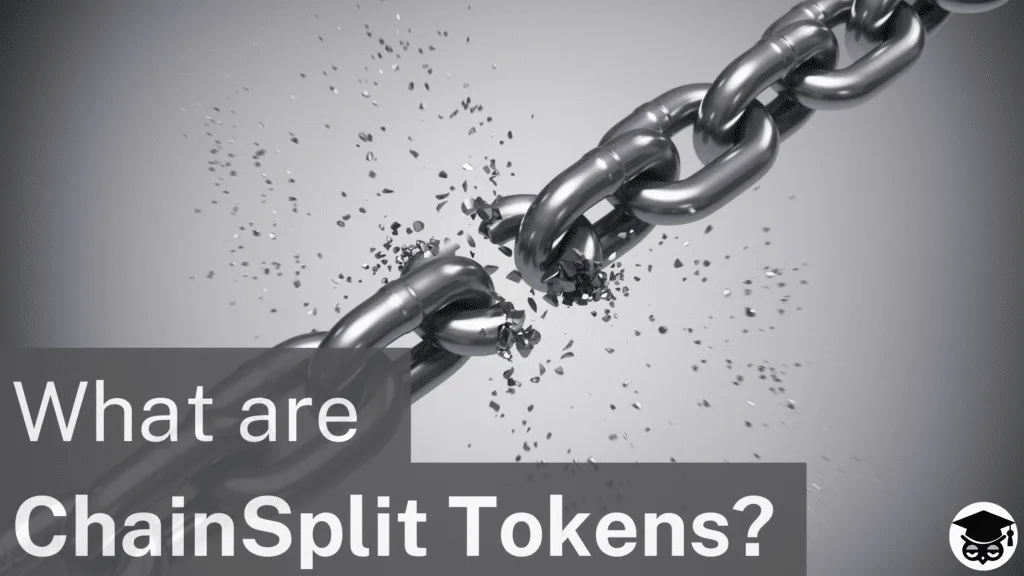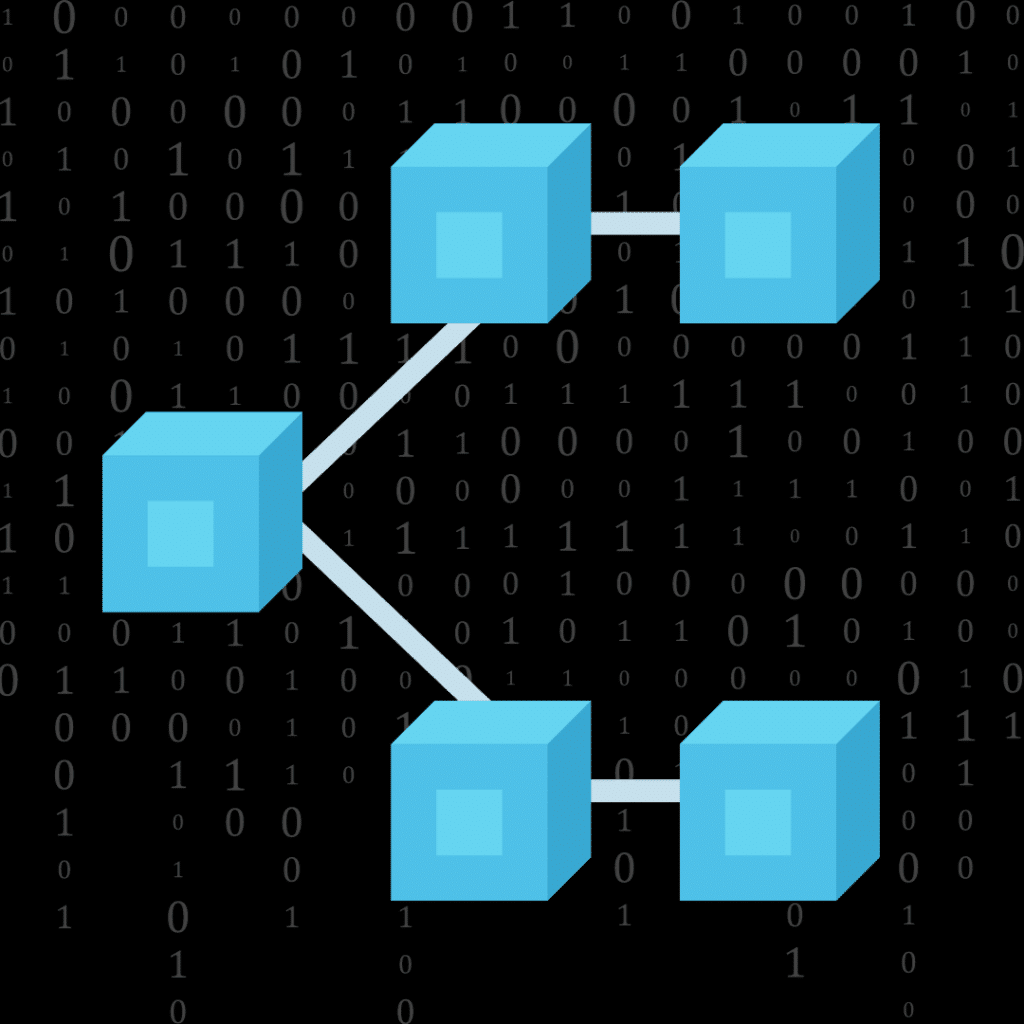What is a Chain Split Token?
Sometimes, a blockchain splits into two separate projects, like when Ethereum split into Ethereum and Ethereum Classic. When this happens, a new coin is created for the new blockchain. This new asset is called a chain-split token.
The Long Definition
A chain split occurs when developers build their own coin based on the code of an existing project. It can happen for several reasons. It might result from a desire to improve the original project, a dispute between developers, or it might be inspired by a simple joke.
Since the code behind crypto blockchains is available for anyone to see, it can be copied by anyone. This doesn’t happen as often as you might think, though, because it takes a lot of people a lot of work to do it successfully. And, just because a new blockchain has been built doesn’t mean it will have the same community behind it as the original.

Understanding chain splits
Chain splits are made possible because many cryptocurrencies are open-source projects. Open-source, in this case, means that anyone can access the code they’re written in. Thus, developers don’t have to build new projects from scratch if they don’t want to. They can take this code and change it to create a new coin.
The new project is usually independent of the original one. Everything up to the split will be the same as the old blockchain, but everything after that will be new. This is why a chain split is usually described as a cryptocurrency fork. When it occurs, it can result in one of two things.
- Hard fork: This results from big changes to the original code. The new project is very different from the parent one. Therefore, it can no longer continue on the original blockchain.
- Soft fork: Developers don’t change the original code too much. This allows the project to remain compatible with its parent blockchain.
Reasons for chain splits
Chain splits occur for a variety of reasons. A common one is the desire to improve the parent cryptocurrency.
A group of developers may feel that the technology of the original coin is inadequate. So, they set out to improve it by making some technical changes, resulting in a new coin.
This was the case with Litecoin (LTC). It was created when some developers decided Bitcoin’s block generation time was too slow. The block generation time is the rate at which new blocks are formed. It affects how fast new coins are created.

Chain splits can also occur from developer disputes. This is when developers working on a project can’t agree on how or what to do next. Thus, they split into different groups, each working on their own ideas.
This happened with Bitcoin Cash (BCH). BCH forked from Bitcoin when developers couldn’t agree on scalability improvements that would help Bitcoin keep up with its growing popularity. It was also the case with Ethereum Classic (ETC). ETC split from Ether (ETH) because the Ethereum community couldn’t agree on what to do after The DAO, a popular protocol on the blockchain, was hacked.
A chain split can also occur as a joke. Dogecoin (DOG) is a good example. It forked from Litecoin as a meme. Most meme coins don’t go anywhere, but DOGE was an exception. It was so successful that it managed to surpass $2 billion in market capitalization.
What are the effects of chain splits?
There is a positive side to chain splits. Some improve on existing blockchain technologies, and by creating new coins, they also create new investment opportunities.
On the flip side, chain splits disrupt existing environments. The community of the original blockchain becomes divided, and projects being built with the original cryptocurrency may be forced to create new strategies.
Users and developers are confused when new coins are created. This is because they don’t know which crypto they should continue with.
